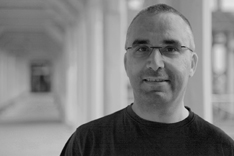History of Medicine

Stefan Wesselmann - Diplom-Gerontologe; Neuphilologe, M.A.
Network Aging Research
Bergheimer Straße 20
D-69115 Heidelberg
Phone: +49 (0)6221 54 81 25
wesselmann@nar.uni-heidelberg.de
Fellows: Prof. Dr. Andreas Kruse, Prof. Dr. Wolfgang U. Eckart
Old age and dementia in the discourse of the mid-18th century – Johann August Unzer and his environment
Texts about old age and weakening mental and physical performance are probably as old as written records themselves. The topic of dementia is likely to have played a role throughout human history. In the 18th century, the Age of Enlightenment, the French Revolution and the advent of industrialization, the scientific methods also transform with the images of old people and the views on their ‘value’. It is no longer enough to construct hypotheses. They also must be verified.
Johann August Unzer (1727-1799) is, according to Johann Wolfgang von Goethe, one of the three most important German physicians of that time. Today’s History of Medicine shares this opinion. Just like his teacher Johann Gottlob Krüger (1715-1759), Unzer can be included among a group of ‘psycho-physicians’ at the University of Halle, which is considered the best in Germany at that time. The most important theories about the relationship of body and soul are discussed in Halle: Georg Ernst Stahl’s animism, Herman Boerhaave’s mechanism and Friedrich Hoffmann’s theory of the fluidum of nerves. Christian Wolff’s rationalist philosophy is also taught in Halle.
From 1759 to 1764, Unzer publishes the magazine “Der Arzt” [The Medical Doctor]. It gives medical advice to professionals and ordinary people in the course of educating the public on Enlightenment. It meets with enormous response. Some articles in “Der Arzt” show a wide spectrum of contemporary images of old age and diseases and the treatments for the elderly: aphasia in an 80-year-old man, a senile hypochondriac as a ridiculous figure, a pathologically miserly ‘ugly old woman’ or a 63-year-old woman whose right to life is questioned given her age. Unzer is not-solely dedicated to one medical or philosophical theory. He links various medical schools and openly acknowledges that effective treatments are much more important to him than a coherent theory construct. His holistic approach which combines medicine, philosophy, theology and literature, appears almost exemplary today. Unzer’s medical concepts and therapies for the body are derived from the typical contemporary instruments. He prescribes bloodletting for strokes, spices against melancholy and his self-made digestive preparation against various diseases. Growth and aging arise, according to Unzer, from the fact that the “Nahrungssaft” [nutriment juice], so to speak, inflates the “Fäsergen” [small fibres] of the body and hardens and dries out with age.
Since today’s concept of dementia is not yet defined in the 18th century, dementia deficits in Unzer’s texts are often circumscribed, for example, as character flaws. Unzer attributes typical main vices to each of the three age segments: Youth is lustful, manhood is ambitious and old age is miserly. Old people who behave in an unusual way may also be suspected of witchcraft. As a supporter of the Halle philosopher Christian Thomasius, Unzer opposes the belief in witchcraft. He assumes that most alleged witches are insane. In his terminology, the age-related decline of short-term memory is created by an exhaustion of the “Einbildungskraft” [force of imagination]. Therefore, the “vergangenen Zustände der Welt” [past states of the world] cannot longer be perceived correctly by the “Seele” [soul]. Krüger believes, however, that the “Gehirnfäsergen” [small brain fibres] either slacken or stiffen and therefore are no longer capable of the movement which memory requires.
In the dissertation, Unzer’s work will be placed in the context of his development and his time. The research on dementia and dealing with it in the 18th century show some parallels to the present. One goal of the dissertation is to work them out and ask what can be learned from the historical discourse.
Publications (selected)
- Wesselmann, Stefan: „Der Arzt“ als Dichter: Johann August Unzer (1727–1799) auf den Spuren Molières. Jahrbuch Literatur und Medizin VI (2014), 221-240.
- Wesselmann, Stefan: Johann August Unzer: Mediziner, Journalist, Philosoph – und Experte für ‚Demenz‘. Kulturfalter 11 (2013), 30-31.
- Wesselmann, Stefan: Bilder aus der Psychiatriepraxis. NOVAcura 11/12 (2010), 39-41.
- Wesselmann, Stefan: Demenz, Depression und Delir: So unterscheiden sie sich. NOVAcura 6 (2010), 11-13.
- Wesselmann, Stefan: Lebensqualität und Demenz: „H.I.L.DE. sagt uns, wie es dem Bewohner geht.“ Altenheim 4 (2009), 46-47.
- Wesselmann, Stefan: Wenn Vater leise Abschied nimmt – Volkskrankheit Demenz. Mannheimer Morgen, 17.06.2008, 3.
- Wesselmann, Stefan: Szenen einer Ausbildung: Maden baden. NOVA 3 (2007), 36-38.
- Wesselmann, Stefan: Menschlichkeit nach Dienstplan: Die Arbeit als Altenpfleger(in) erfordert mehr als ein paar gute Worte: Auch Disziplin und Nervenstärke sind gefragt. Mannheimer Morgen, 10.12.2005, 3.
Vita
| 10/1999 | M.A. in Rhetorical Studies, German Philology and History, Eberhard Karls University of Tübingen | |
| 03/2000 - 11/2002 | Trainee and Editor at the newspaper “Schwarzwälder Bote”, Oberndorf/Neckar | |
| since 12/2002 | Freelancee journalist and copywriter | |
| 09/2007 | Gerontological Nursing Certification Test | |
| 10/2007 - 02/2014 | Gerontological nurse at Augustinum Seniorenresidenz Heidelberg | |
| since 04/2008 | Freelancer at the newspaper “Mannheimer Morgen” | |
| 10/2010 | Diploma in Gerontology, University of Heidelberg | |
| 08/2010 - 02/2014 | Member of the NAR „Graduate Program Dementia“, University of Heidelberg | |
| 04/2013 | Scholarship from the trust “Franckesche Stiftungen”, Halle (Saale) |


